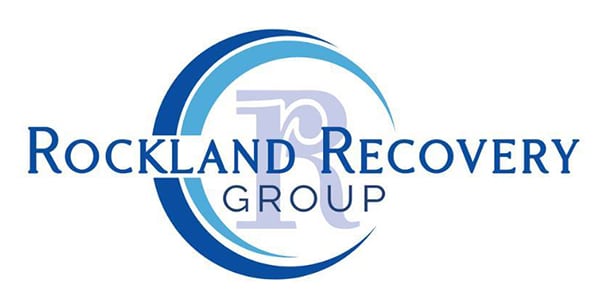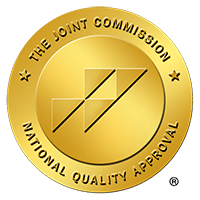Relapse is often viewed as a weakness or a failure in addiction recovery, but this is far from the truth. Relapse is not only common, but it is an expected part of the addiction recovery process. Understanding relapse, why it happens, and its implications can help those working hard in their addiction recovery move forward with a sense of resilience and respect for their journey.
At the Rockland Recovery Group, we’re committed to helping and empowering individuals through every stage of addiction recovery, including relapse. Let’s explore what does relapse mean and what it means to the addiction recovery journey.
What Does It Mean to Relapse in Addiction Recovery?
In the simplest terms, relapse is the act of returning to substance use after a period of intentional sobriety. There isn’t an amount or duration of substance use that defines a relapse. It can happen as a single occurrence or a longer period of slipping into previous patterns of drug or alcohol use.
On an emotional level, the effects of relapse are much more complex. Someone who has gone through the challenging and life-changing work of addiction recovery often views relapse as a complete failure, leading to a downward spiral of their feelings of self-worth.
The truth is that relapse is a setback, but it isn’t one that defines an individual’s future. Relapse is also very common. As many as 65% to 70% of individuals will have some level of relapse within the first 90 days after completing an addiction recovery program.
Rather than letting relapse define the addiction recovery journey as a failure, it can be used as a learning experience as the brain rewires itself during and after treatment. Understanding the stages of relapse and why it happens can help prevent relapse and get the individual back on track when it happens.
If you or someone you care about has recently relapsed or are in need of addiction treatment, we urge you to contact us at Rockland Recovery. Our staff is available to answer all of your questions and help you take the next steps. We also recommend the Substance Abuse and Mental Health Services Administration (SAMHSA) website as a valuable resource for information.
The Three Stages of Relapse
Relapse typically isn’t something that happens suddenly without any warning signs. Instead, relapse is usually a more gradual process with the individual passing through several stages before they physically return to using drugs or alcohol.
Emotional Relapse
This is the first stage of relapse. It occurs when the individual begins to exhibit behaviors that increase their risk of relapse. The urge to return to drug use might not be strong at this time, but the person might find themselves returning to old patterns, such as distancing themselves from others. It’s often easy to mistake this stage of relapse with the mental health challenges that can accompany addiction treatment.
Mental Relapse
During this stage, the individual begins to actively think about using drugs or alcohol again. The desire to remain sober begins to fade and past substance use becomes romanticized. An individual might seek out spending time with those they used addictive substances with, or return to some of the places they spent time at during this stage of their life. The desire to use drugs just one more time can become stronger.
Physical Relapse
This is the stage where the individual actually uses drugs or consumes alcohol during or after addiction treatment. This can be a one-time occurrence or a regular return to substance use. At this stage, seeking help and re-evaluating the current recovery plan become essential.
Why Does Relapse Happen? Understanding Triggers and Risk Factors
Relapse can happen for a number of reasons, and these can be different for each person. There is often a combination of substance use triggers and risk factors at play. Triggers are the various external stimuli that have a strong potential to prompt cravings.
Triggers can include factors like stress, exposure to certain individuals or situations, social pressure, and unresolved trauma. An important part of addiction treatment is learning what individual triggers are and how to recognize and address them.
There are also risk factors that can contribute to relapse. As opposed to triggers, some risk factors are internal or more difficult to address. For example, co-occurring mental health disorders can contribute to relapse risk, as can untreated trauma and genetic factors. Unsupportive home environments, while external, are also a risk factor because their dynamic nature makes them difficult to change.
The Implications of Relapse in Addiction Recovery
The implications of relapse can be far-reaching. Relapse carries with it an emotional and mental toll, along with stress on the physical body. Mentally, relapse often creates feelings of shame, guilt, and frustration.
Self-esteem can tank, and it becomes difficult to regain the emotional strength and stability that is needed to get back on track. Physically, relapse can be extremely dangerous, posing a risk to the individual’s physical safety and well-being.
Even with all of this, it’s important to recognize that relapse is a temporary stop on the road to recovery. It can be a key learning moment that helps the individual examine the emotions and circumstances that contribute to relapse more deeply.
Next Steps for When Relapse Occurs
When relapse occurs, it’s important to quickly take steps to get help and prevent future drug or alcohol use. Reaching out for support, whether it’s reaching out to a family member, loved one, trusted friend, sobriety mentor, or therapist, is essential.
At Rockland Recovery, we want you to know that relapse isn’t the end of the road. It’s an opportunity to learn, grow, and start anew. Don’t let a relapse define you or your recovery. Contact Rockland Recovery at 888-299-4833 today.






